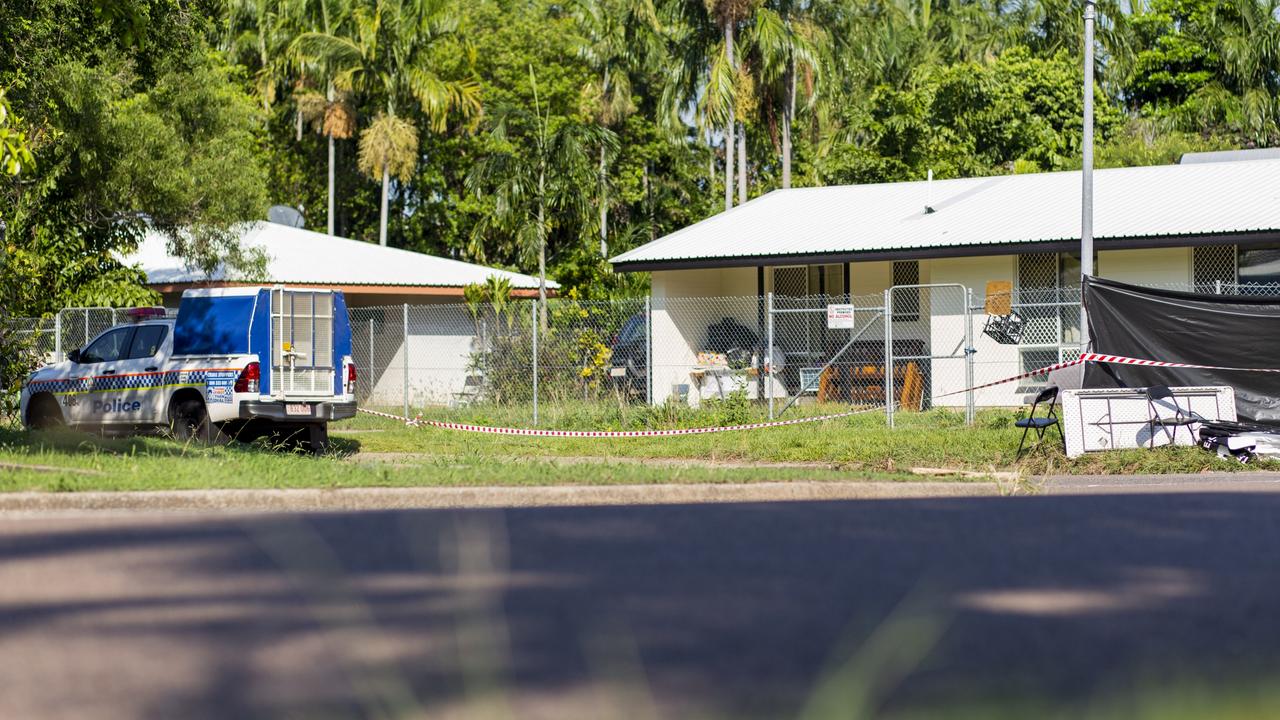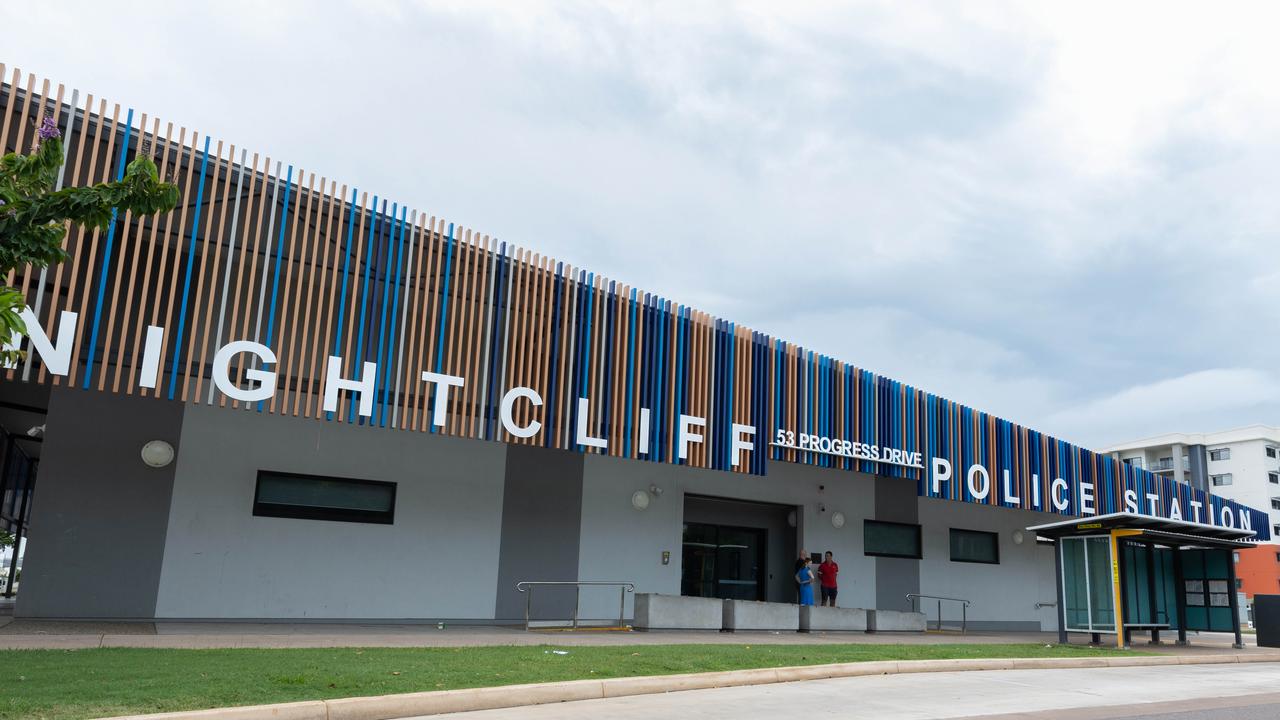Zach Rolfe ‘asked colleague to scratch his face to justify excessive force’, court hears
Further details of alleged excessive force used by Zach Rolfe in the arrest of an Aboriginal man in Alice Springs in 2018 have been released by the Supreme Court. WATCH THE VIDEO HERE

Police & Courts
Don't miss out on the headlines from Police & Courts. Followed categories will be added to My News.
UPDATE 6PM: FURTHER details of alleged excessive force used by Zach Rolfe in the arrest of an Aboriginal man in Alice Springs in 2018 have been released by the Supreme Court.
In arguing for the “tendency evidence” to be put before the jury in Constable Rolfe’s murder trial in January, prosecutors had alleged Constable Rolfe had “punched” Malcolm Ryder “to his head, grabbed his hair and slung his head to the ground”.
“The Crown alleges that the use of force was excessive because it was neither reasonable nor necessary,” Justice John Burns said in his pre-trial ruling.
“It further alleges that the accused’s use of force resulted in Ryder being rendered unconscious and sustaining a laceration to his right forehead requiring 13 sutures and a laceration to his left forehead requiring three sutures.”
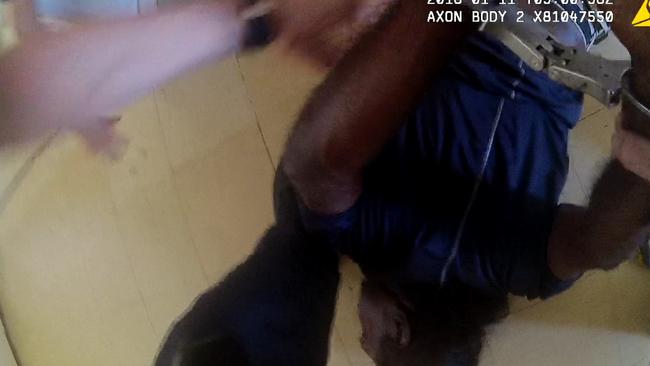
Prosecutors also alleged Constable Rolfe later asked a detective at the Alice Springs police station “to scratch his face so that he could blame that injury on Ryder in order to justify his use of force”.
In making submissions on the application, Crown prosecutor Philip Strickland SC, quoted from a police interview with another officer who would later become Constable Rolfe’s fiance.
Mr Strickland said the woman told investigators she had interviewed Mr Ryder following the arrest and remembered “not liking Zach because Malcolm Ryder had this massive gash over his head”.
“Then later when I was at the station Zach told someone else, I can’t remember who else was with me, but, like, secretly where the cameras weren’t looking at work, that he had someone scratch him,” she said.
“Someone upstairs scratched him to say in his use of force, that was why he had given him, that is, Ryder, that gash on his forehead.”
Other tendency evidence the prosecution sought to put before the jury included an incident in which Rolfe allegedly “banged” an Indigenous teenager’s head “into a rock several times” and later allegedly made a false statement about it in a statutory declaration.
In ruling the evidence would not be admitted at Constable Rolfe’s trial, Justice Burns said the incidents “taken at their highest, strongly support a tendency on the part of the accused to make a false statement or do some other act seeking to justify the use of excessive force”.
But Justice Burns said while the alleged tendencies “may meet the basal requirement of relevance”, they did “not have significant probative value”, which did not outweigh “the danger of prejudice to the accused”.
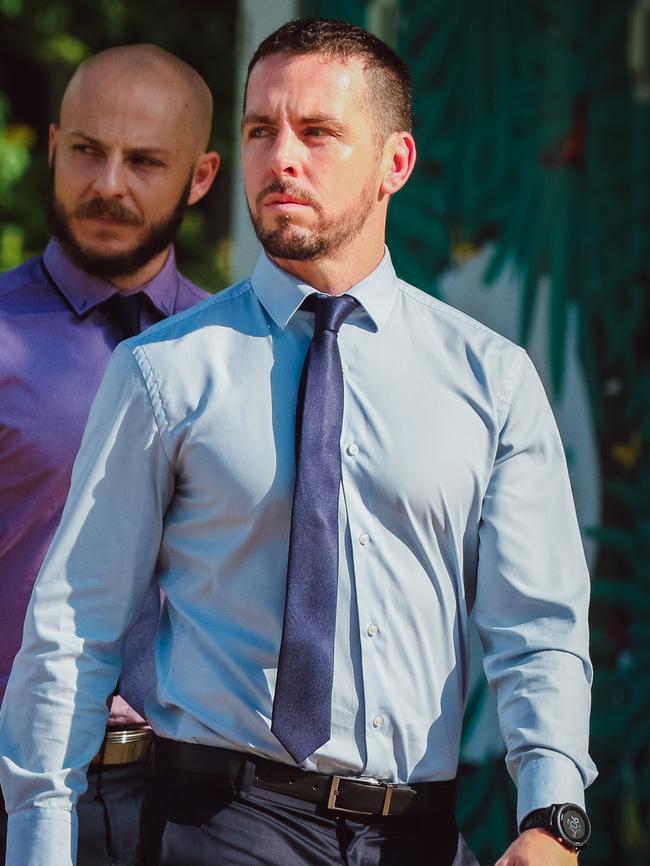
“At a high level of generality there is a similarity between the events in the tendency incidents and the charged events, but there are very significant differences,” he said.
Justice Burns noted “no admissions have been made by the accused with regard to the allegations against him” and “no charges have been proven against him in that regard”.
He said if the evidence was allowed in, the Crown would be effectively required “to conduct five separate trials” to prove the allegations, which could cause a significant blowout in the proceedings.
“I see no reason why the accused would not be entitled to lead evidence of other, and potentially many other arrests in which he has been involved and which may bear similarities to the arrest in the tendency incidents, but which have not involved allegations of excessive force, in order to rebut the Crown’s submission that the jury should infer the alleged tendency from the four incidents it has selected,” he said.
EARLIER: ZACH Rolfe “deliberately assaulted” an Aboriginal man while on duty and later “lied” about it under oath, evidence not put before his Supreme Court jury and previously suppressed from publication reveals.
The NT Police officer was acquitted on all charges over the shooting death of 19-year-old Yuendumu man, Kumanjayi Walker, in 2019 by a jury of his peers last week.
Prior to the trial, Crown prosecutor, Philip Strickland SC, had argued that the findings of Alice Spring Local Court judge, Greg Borchers, should be put before the jury but the application was denied.
As a result, the findings were suppressed from publication, but following an application by members of the media, including the NT News, Justice John Burns lifted that order on Friday.
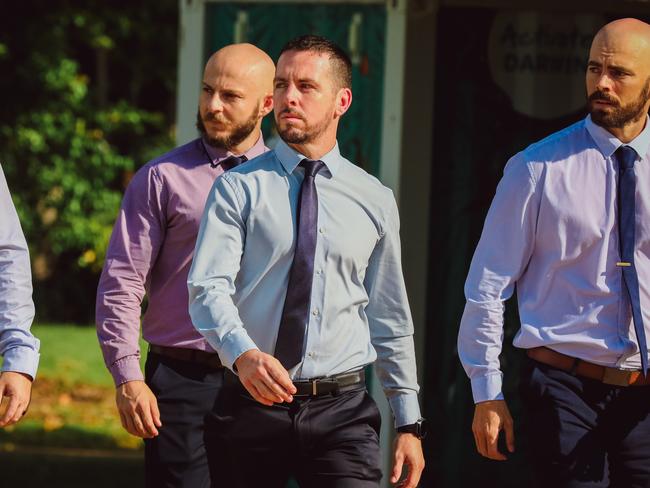
In arguing for the evidence to remain secret, Constable Rolfe’s barrister, David Edwardson QC, said the allegations had never been substantiated and “no finding has been made against Mr Rolfe in respect of those issues”.
“There was no further disciplinary action, or action in any event, taken as against him, so they’re no more than an argument that was advanced by the prosecution, unsuccessfully, as to conduct imputed against Mr Rolfe which has never been substantiated,” he said.
“Of course, if somebody made those allegations against Mr Rolfe outside of court, it would be plainly defamatory and he would be protected by the appropriate response, in other words, he’d sue for defamation.”
But in supporting the media’s application, Mr Strickland said Mr Borchers had in fact made findings against Constable Rolfe, including that he assaulted Malcolm Ryder and lied about it under oath.
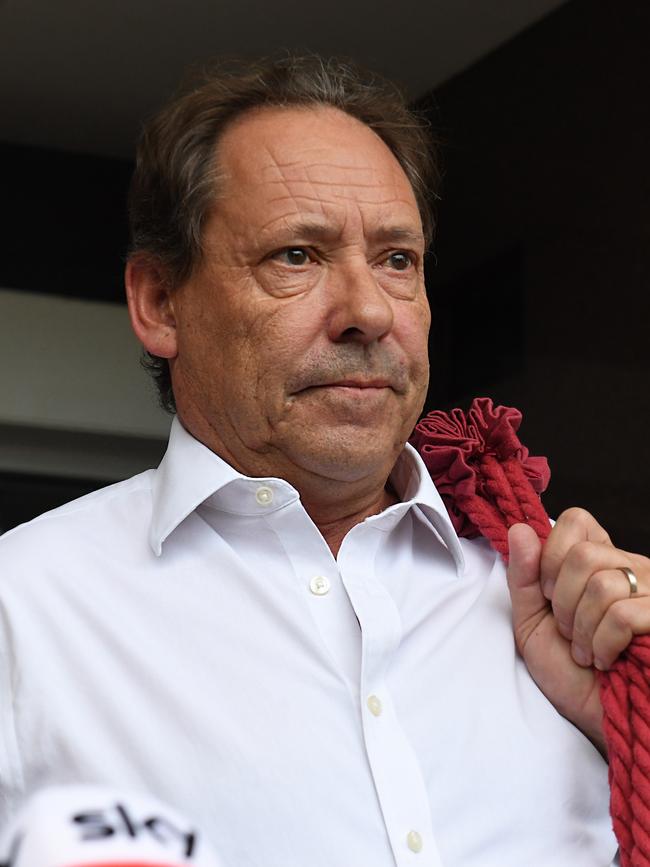
“Of course, the decision by Judge Borchers, which is part of the material where a suppression order is sought, did in fact make a finding in relation to the subject matter of the suppression order,” he said.
“The finding was that the accused had deliberately assaulted Mr Ryder, the finding was that the accused lied in his evidence in relation to that matter, so there has been a finding by a court in Darwin on the subject matter of the suppression orders.”
In revoking the non-publication orders, Justice Burns said any possible damage to Constable Rolfe’s reputation had to be measured against the importance of the principle of open justice.
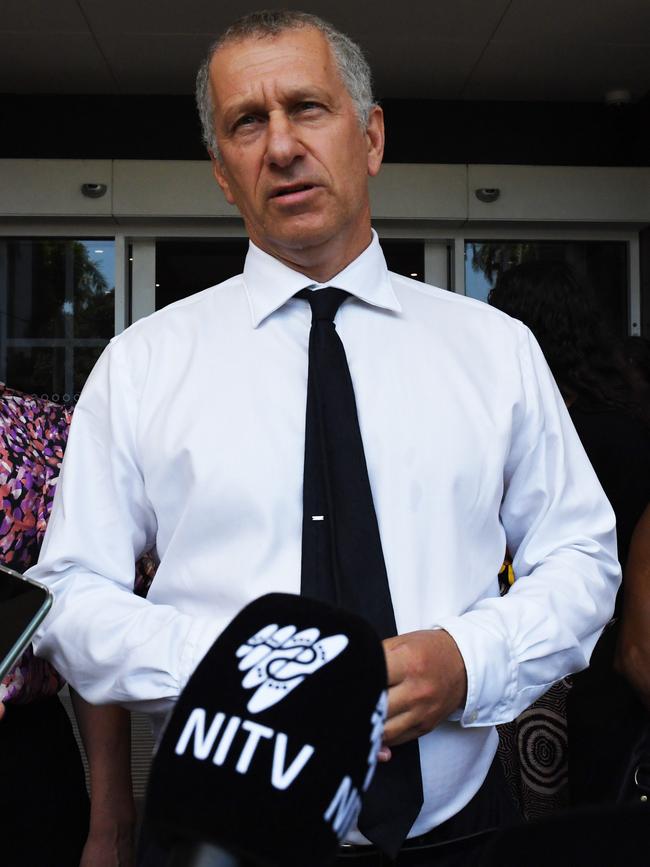
“Whichever way one looks at the matter, while there may be some embarrassment, and potentially some damage to the reputation of Mr Rolfe, if that material which is subject to the suppression orders is published, that is of lesser importance, in my view, than ensuring that the public has the means of scrutinising the decisions which have been made by this court,” he said.
“In my view, it is in the public interest that decisions made by the court surrounding the evidence which the Crown sought to lead at trial and which was rejected be subject to open scrutiny, this is particularly so in a case where there are post-trial claims made of interference in the charging process.”



